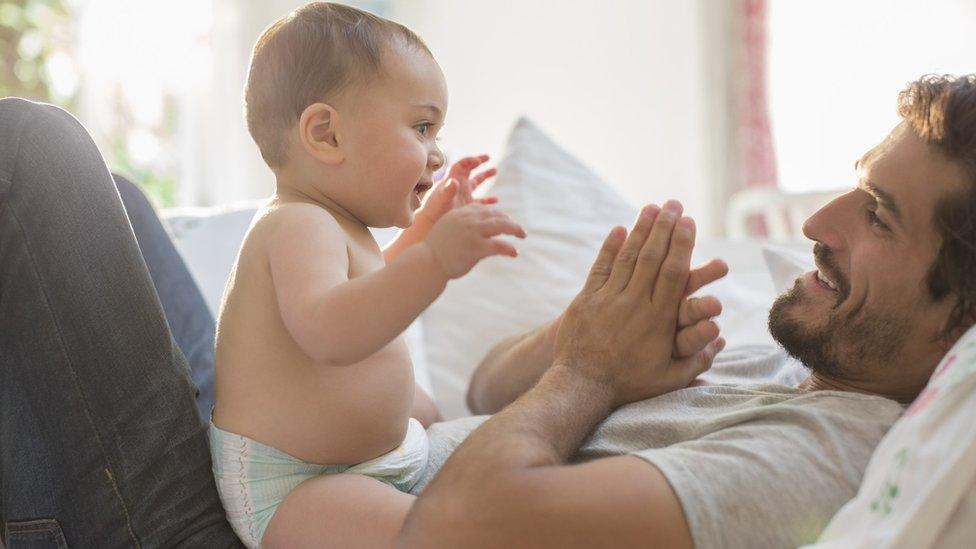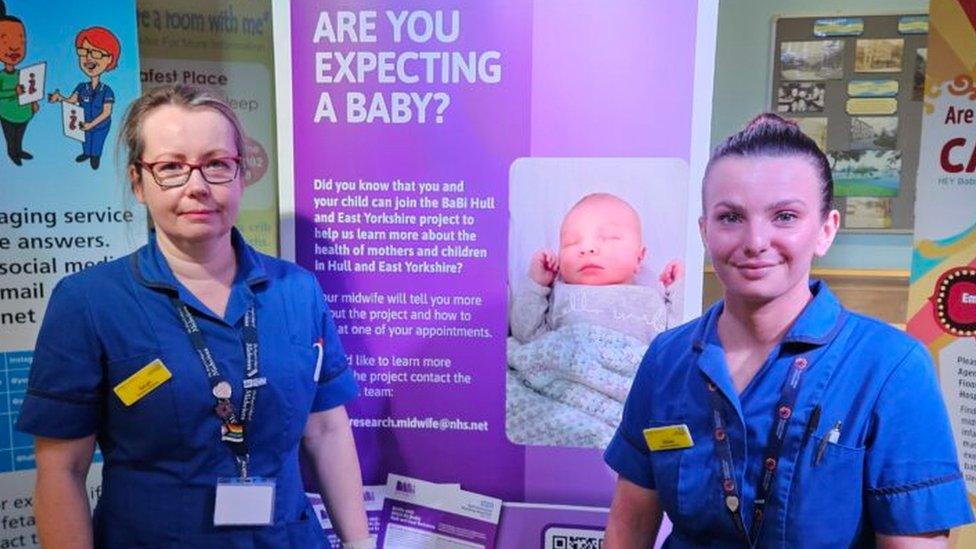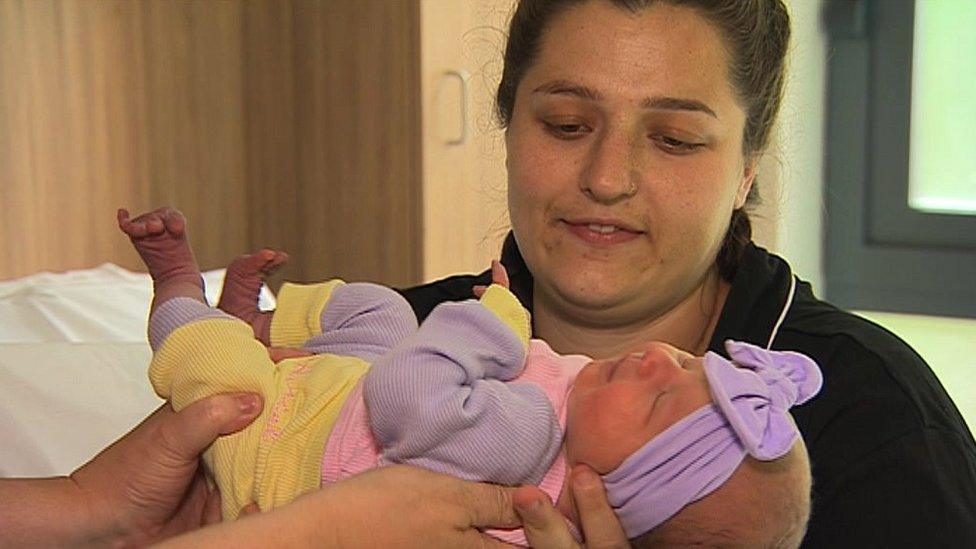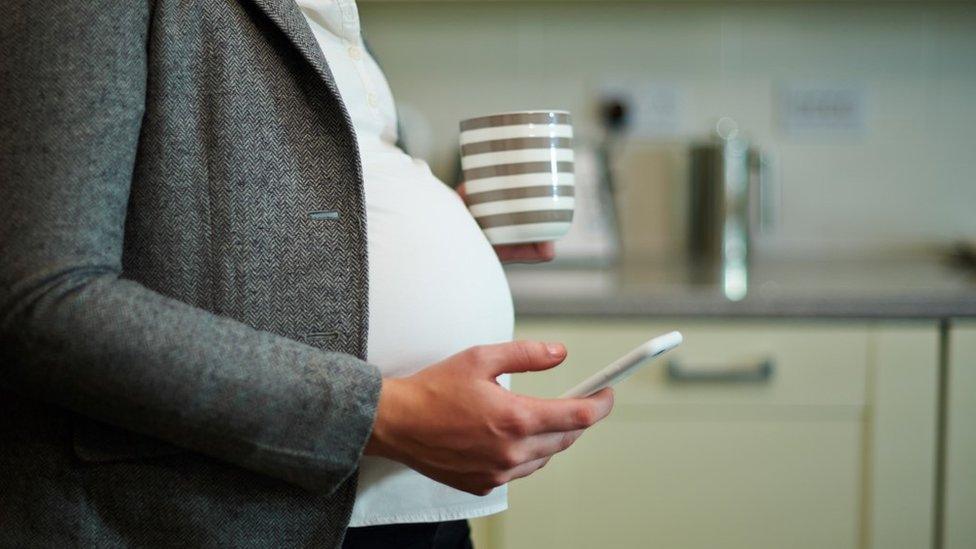Born and Bred in Hull child study aims to 'improve lives'
- Published

Families are sought for a new study looking at child development
Families are being sought to take part in a study to track the health of children born in Hull.
Born and Bred in Hull aims to "shape a healthier generation", according to Hull University Hospitals NHS Trust.
The study will "connect up" information held by health, education and social care professionals.
Sarah Collins, research-lead midwife at Hull Royal Infirmary, said it could "improve the lives of future generations".

Sarah Collins, left, and Eloise Taylor from the Born and Bred in Hull study team
Ms Collins added: "Like many other northern towns and cities, Hull is subject to some stark health inequalities.
"We're keen to use the study to look at the factors that may impact children's health and then use this data to make service improvements or to highlight societal changes which could give future generations the chance to grow up healthier and happier."
An identical study was carried out in Bradford.
Citing the West Yorkshire study, Ms Collins said: "The data collected has contributed to bus route diversions in areas where pollution and childhood asthma were both noted to be particularly high.
"It has also helped to increase green spaces across the city, as study data suggested that those with access to grass and parks had better mental health."
All pregnant women under the care of Hull Women & Children's Hospital will be invited to take part in the study.
Ms Collins said: "There's no need for us to ask questions, to weigh or measure the baby or for parents to keep a diary. It's as straightforward as giving us consent to access data for the purpose of our research. And if people later decide they don't want to take part, that's no problem either."
Researchers aim to recruit 400 volunteers in the first year.
An explanatory video about the study can be found here, external.

Follow BBC East Yorkshire and Lincolnshire on Facebook, external, X (formerly Twitter), external, and Instagram, external. Send your story ideas to eastyorkslincs.news@bbc.co.uk, external
- Published7 July 2022

- Published6 February 2024

- Published29 July 2011